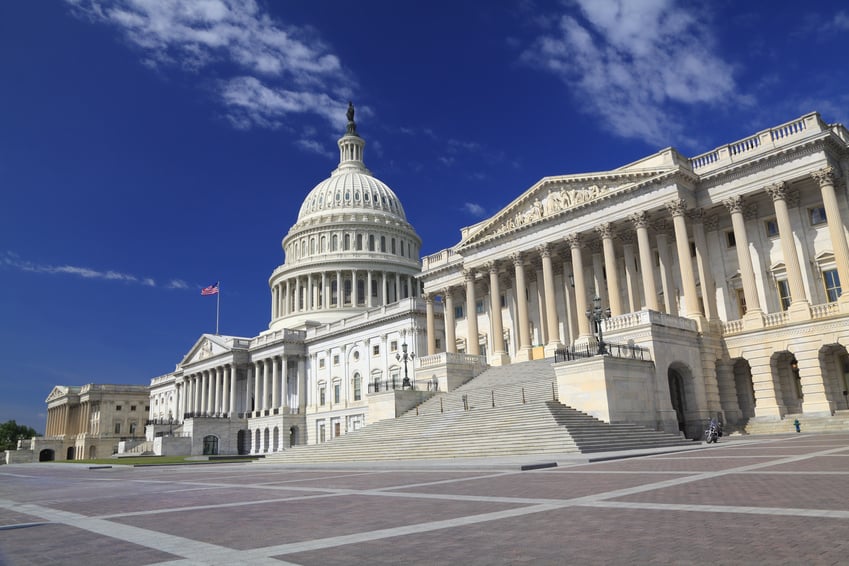Throughout January and February 2023, Baker McKenzie’s Canadian international trade team is publishing a series of articles focusing on developing Canadian trade compliance issues.
This article focuses on Canada’s economic sanctions measures.
Throughout 2022, there were substantial legislative developments under Canada’s unilateral sanctions regime. New sanctions regulations were implemented or amended in response to the war in Ukraine and in response to conflicts in Haiti, Iran and Myanmar. The framework and application of Canadian sanctions law also underwent changes, including the introduction of a new asset forfeiture regime. Additionally, for the first time, a Canadian court opined on the issue of “control” under the Special Economic Measures Act (the “SEMA”).
We expect Canada’s sanctions activity to continue throughout the course of 2023. Over the past three weeks, Canada has continued its momentum, amending sanctions that were implemented against Haiti in November, amending sanctions against Iran, and introducing a new sanctions regime against Sri Lanka. We also expect to see sanctions enforcement through use of the new asset forfeiture regime and the possibility of investigations concerning sanctions compliance driven by scrutiny of sanctions enforcement by Canada’s trading partners.
This article provides an overview of:
- The current Canadian legislative sanctions framework;
- The 2022 developments to SEMA regulations and a forecast for 2023 developments;
- The 2022 SEMA amendments and the expectation of enhanced enforcement in 2023, including use of the asset forfeiture regime;
- The rise of human rights based sanctions implementation; and
- The need for continued compliance vigilance by Canadian businesses.
1. Canada’s Economic Sanctions Regime
Canadian sanctions apply to all individuals and businesses in Canada and to all Canadian citizens and Canadian-incorporated businesses operating outside Canada. Economic sanctions in Canada are implemented by way of regulation under the authority of the United Nations Act(“UN Act”), the Special Economic Measures Act(“SEMA”), the Justice for Victims of Corrupt Foreign Officials Act (“JVCFOA”, also known as the “JVCFOA”), and the Freezing Assets of Corrupt Foreign Officials Act(“FACFOA”).
Broadly speaking, sanctions implemented under these Acts seek to:
- prohibit Canadian citizens and Canadian incorporated companies from dealing in property or facilitating transactions for (i) designated persons or (ii) within certain geographic regions;
- prohibit Canadian citizens and Canadian incorporated companies from engaging in prescribed activities; and
- impose screening and reporting obligations on Canadian persons.
Canada’s legislative process to adopt and implement regulations is streamlined, as compared to the parliamentary process required to enact new laws. In practice, this allows for Canada’s sanctions regulatory landscape to shift quickly. Regulations often come into force prior to being publicly announced, requiring heightened vigilance by Canadian businesses needing to comply with new regulations.
Canada takes a cooperative approach to its sanctions implementation: the SEMA provides authority to Canada to enact sanctions when an organization of state of which it is a member has called on its members to take economic measures against a foreign state; pursuant to the UN Act, Canada enacts sanctions to implement resolutions passed by the United Nations Security Council; and Canada typically coordinates sanctions with its trading partners.
However, in 2022, Canada made a policy decision to distinguish its sanctions regime – it established an asset forfeiture regime targeting the property of designated persons. An overview of the amendments to the SEMA and the JVCFOA are outlined below.
2. 2022 Sanctions Developments Continue to Expand in 2023
SEMA Regulations issued in relation to Ukraine (linked to Russia’s ongoing violations of Ukraine’s sovereignty), Belarus, Russia, Iran and Myanmar, were continually amended throughout 2022. Canada also introduced sanctions in relation to Haiti in November 2022. As of January 2023, there were over 2,600 sanctioned parties from Ukraine, Belarus, Russia, Iran, and Haiti and Myanmar.
This momentum has continued into 2023, with Canada amending the SEMA Regulations enacted in relation to Iran and Haiti and enacting sanctions in relation to Sri Lanka over the past three weeks. In addition to these sanctions regulations, Canada maintains sanctions in relation to 16 countries under the SEMA and the UN Act.
Each of the SEMA regulations imposes a dealings prohibition on designated persons listed under Schedule 1 of each respective regulation. A dealing prohibition is effectively an asset freeze and prohibits any person in Canada or any Canadian outside Canada from:
- dealing in property, wherever situated, that is owned, held or controlled by listed persons or a person acting on behalf of a listed person;
- entering into or facilitating any transaction related to a dealing prohibited by the Regulations;
- providing any financial or related services in respect of a dealing prohibited by the Regulations;
- making available any goods, wherever situated, to a listed person or a person acting on behalf of a listed person; and
- providing any financial or other related services to or for the benefit of a listed person.
Beyond the dealings prohibition, each sanctions regulation prohibits particular activities, as constrained by the legislative authority under section 4(2) of the SEMA. As it stands, Canada maintains the most comprehensive sanctions in relation to North Korea. Canada’s sanctions against Russia, Ukraine and Belarus are also extensive.
All persons in Canada and all Canadian outside Canada must disclose, without delay, property in their possession or control that they have reason to believe is owned or controlled, directly or indirectly, by a Schedule 1 designated person or information about a transaction or proposed transaction with respect to that property. Enumerated entities also have an obligation to continually determine and disclose property owned or controlled by or on behalf of a Schedule 1 designated person.
3. 2022 SEMA and JVCFOA Amendments Enhance 2023 Enforcement Landscape
On June 23, 2022, Canada substantially amended the SEMA and the JVCFOA. The amendments followed Canada’s participation in the Russian Elites, Proxies, and Oligarchs (“REPO”) Task Force, an international task force aimed at accelerating efforts to seize oligarch assets in response to the Ukrainian war.[1]
Beyond creating an asset forfeiture regime, the amendments also enhance the enforcement mechanisms available under the SEMA. The amendments establish authority to compel information, permit information sharing between enforcement agencies, and define a statutory role for the RCMP to play in seizure and forfeiture proceedings. The amendments also codify Global Affairs Canada’s authority to issue general permits.
The amendments include the following:
- Expanding the definition of “property”, which now includes digital assets and virtual currencies.[2]
- Establishing a provision to describe circumstances under which the government may make orders or regulations.
- Expanding the scope of orders and regulations that the government may make, the type of property that may be targeted by an order, and the types of order that may be granted. This includes restraining property that is held or controlled “directly or indirectly”.
- Codifying the authority to issue general permits allowing persons in Canada or Canadians to carry out activities otherwise prohibited under the SEMA.
- Creating a review process requiring the Minister of Foreign Affairs to consider whether there are reasonable grounds to cease an order issued under the SEMA.
- Recognizing a person’s secured and unsecured rights and interests in property that is subject to an order issued pursuant to the SEMA, subject to two exceptions: (1) when that person is either the foreign state identified in the order, a person in that state, or a national of that state that does not ordinarily reside in Canada; or (2) the property is forfeit under the SEMA.
- Establishing a mechanism to bring forfeiture applications for property of designated persons and to pay out the net proceeds from the disposition of forfeit property in three scenarios: (1) to reconstruct a foreign state adversely affected by a grave breach of international peace and security; (2) the restoration of international peace and security; and (3) the compensation of victims of a grave breach of international peace and security, gross and systematic human rights violations or acts of significant corruption.
- Permitting information sharing between ministries and other government agencies, including the Office of the Superintendent of Financial Institutions (“OSFI”), the Canada Border Services Agency (“CBSA”), the Canadian Security Intelligence Service (“CSIS”), and the Royal Canadian Mounted Police (“RCMP”), to aid in the administration and enforcement of the SEMA.
- Defining a role for the RCMP to assist in the seizure, restraint or forfeiture of property.
- Establishing authority to compel information that is relevant to making, administering, or enforcing orders and regulations issued under the SEMA.
The JVCFOA was also amended in 2022 to reflect the similar amendments to those implemented under the SEMA. Notably, the JVCFOA also contains an expanded the definition of “property”[3] and the authority to make a forfeiture application for property on notice to any person who appears to have an interest or right in the property.
SEMA Forfeiture Regime
With respect to the forfeiture regime, Canada was the first G7 nation to establish this type of regime. The regime establishes a multi-step forfeiture process whereby:
- The Governor in Council (the Governor General) must issue a seizure order for property of designated persons on advice of cabinet (the Minister of Foreign Affairs).
- There is a limited opportunity for a designated person to appeal to the Minister to cease the order.
- The Minister must bring a forfeiture application to a Canadian Superior Court of Justice.
- The Court will determine whether (1) the property named in an application is the property described in an order, (2) and if the property is owned, held or controlled, directly or indirectly, by the person referred to in the order.
- Notice is provided to the general public allowing for persons with an interest in the property to apply to the Court such that their property right is not subject to forfeiture.
- If the Court allows an application, the forfeit property is held in the “Proceeds Account” established under the Seized Property Management Act.
- The Minister of Public Services and Procurement has responsibility for the custody and management of the forfeit property until such a time that a charge is made against the account reflecting the disposition of the forfeit property to reconstruct a foreign state, restore international peace and security, and/or compensate victims.
This type of forfeiture mechanism is largely untested in international law. In Canada, the first test case of this unique regime is underway. In mid-December 2022, the government issued an Order in Council ordering the seizure of US $26 million in assets, alleged to be property owned, held or controlled, directly or indirectly by a Schedule 1 designated person under the Special Economic Measures (Russia) Regulations (the “Russia Regulations”).[4] In this case, the assets are in the name of a company alleged to be held or controlled by a designated person (individual) and are held at a Canadian bank.
It is possible that the forfeiture proceedings may be challenged as being ultra vires the federal government’s criminal law power (by infringing on the provincial power to legislate on property and civil rights), as a breach of section 8 of the Canadian Charter of Rights and Freedoms which protects against unreasonable seizure, or the forfeiture may be challenged on its facts regarding what constitutes direct or indirect control of an asset.
A forfeiture may also be vulnerable to a challenge under Article IX of the Canada-Russia Foreign Investment Promotion and Protection Agreement (the Agreement Between the Government of Canada and the Government of the Union of Soviet Social Republics for the Promotion and Reciprocal Protection of Investments) as a violation of Article IV, Expropriation. We expect the test case to continue to develop throughout 2023 and that any future determination will serve as binding precedent on future forfeiture applications under this new regime. It is likely that the decision will also provide much-needed jurisprudence on what is meant by “control directly or indirectly” in a sanctions context, and it may opine on the issue of sanctions circumvention using testamentary instruments, like trusts. As it stands, there is no statutory procedural mechanism to challenge the disposition of assets by an individual using testamentary instruments prior to designation under a SEMA regulation. Whether the law could be amended to include this type of mechanism, similar to the existing protections under Canadian law against fraudulent conveyances/transfers preceding a bankruptcy, remains to be seen.
It is unlikely that Canada will attempt to forfeit sovereign assets (i.e. the Central Bank of the Russian Federation, which is designated under the Russia Regulations) as there appear to be several legal impediments to doing so under domestic and international law. For example, Canada’s State Immunity Act, provides immunity for foreign nations from the jurisdiction of Canadian courts, subject to certain exceptions. Moreover, the Attorney General of Canada recently took the position in a court proceeding relating to Ukrainian Airlines flight PS752 that property owned by Iran, subject to a motion for a writ of seizure and sale, is diplomatic property under the Foreign Missions and International Organizations Act and is a therefore subject to certain privileges and immunities. Although not yet publicly available, the court is reported to have dismissed the motion.
4. Addressing “Control” In Property Ownership Under The SEMA
The issue of whether property is held or controlled by a sanctioned individual is contextual: it is a highly fact dependent analysis. From a compliance perspective, the concept of property ownership, or “control” is an underlying factor in the determination of whether an activity may result in a violation under Canada’s sanctions regime. For example, the broad dealings prohibition included in SEMA regulations applies to property owned, held or controlled by or on behalf of, or directly or indirectly, by a designated person. Ownership also plays a key part in determining the success of a forfeiture order: a court can only forfeit property that is owned, held or controlled, directly or indirectly, by a designated person.
A narrow interpretation of control will constrain the scope of property dealings prohibited under SEMA regulations, or the success of a forfeiture order, and vice versa. While, there is no definition of control under the SEMA, or its regulations, a recent court decision addresses the issue of control under the Russian Regulations in obiter dicta.
In Angophora Holdings Limited v. Ovsyankin[Ovsyankin], the court considered the enforcement of a recognition and enforcement order (“REO”), which would cause the liquidation of a foreign debtor’s Canadian properties, Angophora Holdings Limited (“Angophora”). At issue is whether the SEMA prohibits Angophora, an unsanctioned Canadian company, from dealing with the debtor’s Canadian properties, on the grounds that a sanctioned entity ultimately controls both Angophora and the Canadian properties at issue. The court found that Angophora was in control of the debtor’s Canadian properties following the REO, and if Angophora is controlled by a sanctioned entity, then the Canadian properties at issue would also be indirectly controlled by such sanctioned entity and subject to a dealings prohibition under the Russian Regulations.
Ultimately the Court found a strong prima facie case that Angophora may be controlled by, or acting on behalf of, a corporation subject to the Russian Regulations.In determining the issue of control, the court considered the following factors:
- The sanctioned entity indirectly owned 50% of Angophora. The court noted that the 50% ownership threshold is used in the definition of control in the US and the UK.
- The sanctioned entity advised Angophora regularly and in particular concerning the transaction giving rise to the REO.
- Angophora’s foreign arbitration action giving rise to the ROE were supported by a managing director and employees of the sanctioned entity.
Ovsyankin demonstrates how SEMA regulations can affect the legal rights of non-designated entities that are indirectly controlled designated persons. This decision also illustrates the type of reasoning that Canadian courts will apply to interpret SEMA regulations. In this case, the court applies Canadian statutory interpretation principles and considers the legislation of Canada’s allies in the United States, the United Kingdom, and the European Union. Unlike the United States’ “50 Percent Rule”, Canada has no regulatory guidance addressing the question of control. Accordingly, the court applies ad hoc factors to address whether a designated person has control of an entity.
5. Human Rights Driven Sanctions Implementation In 2022 and Beyond
In 2023, there may be renewed application and use of the JVCFOA to combat human rights abusers. Canada enacted the JVCFOA in 2018 to round out its unilateral sanctions legislation, providing it with authority to sanction individuals who are responsible for, or complicit in, gross violations of human rights. Since the JVCFOA’s inception, Canada has only designated individuals in three instances. The last designations under the JVCFOA were implemented in 2018 in response to the extrajudicial killing of Jamal Khashoggi.
In December 2021, Prime Minister Trudeau published a Mandate Letter to the Minister of Foreign Affairs, stating that the Minister should advance support for democracy and human rights by “continuing to support and implement Canada’s Magnitsky Law, the Justice for Victims of Corrupt Foreign Officials Act, and promote the adoption of similar legislation and practices globally” (“Mandate Letter”). However, despite the Mandate Letter, there were no individual designations under the JCVFOA in 2022.
The Government has instead relied on the SEMA to enact sanctions regulations, or to amend existing regulations, with respect to alleged human rights abuses. For example, human rights abuses are cited in news releases accompanying the amendments to the sanctions enacted in relation to Russia and Myanmar, and the new regulations enacted in relation to Haiti and Sri Lanka.
Canada’s preference for the SEMA, over the JVCFOA, to enact sanctions targeting human rights violations may be explained by the Government of Canada’s circumscribed authority to enact sanctions under the JVCFOA. Unlike the broad grant of authority under the SEMA with respect to human rights violations, at a high level, the JVCFOA is limited to enacting sanctions in the following circumstances:
(1) where foreign nationals and their agents are responsible for human rights violations targeting either those persons exposing illegal government activity or those persons who promote human rights and freedoms; and
(2) where foreign nationals are responsible, or who provide material assistance, for acts of significant corruption.
Given the Government’s recent use of sanctions to condemn human rights violations noted above, coupled with the request in the Mandate Letter, there is potential for continued use of the JVCFOA in 2023, should the underlying facts arise.
6. Canadian Compliance Vigilance Continues into 2023
In 2023, Canadian businesses should continually assess their sanctions compliance in this shifting legal landscape. Regulations enacted under the SEMA obligate persons in Canada and Canadian citizens to disclose certain property held by listed persons under the respective schedules of the country-specific regulations and any related transactional information to the RCMP. Additionally, certain entities have a continuing duty to determine and disclose certain property held by designated persons.
There is no limitations period under the SEMA. Beyond reputational concerns, a conviction under the SEMA may result in large fines or jail time.
Some sanctions compliance considerations are as follows:
- Unlike the SEMA, the JVCFOA designates foreign nationals in a schedule to a single regulation and not in multiple country-specific regulations. Canadian businesses should ensure that their compliance process takes note of designated persons, and does not solely gauge risk based on geographical indicators.
- Canada’s consolidated sanctions list only includes persons designated under the SEMA and the JVCFOA, not the UN Act or the FACFOA. The designated persons under the UN Act are listed by the United Nations. The designated persons listed in a Schedule to each regulation implemented under the FACFOA.
- Amendments to existing SEMA regulations, or newly implemented SEMA regulations, typically apply immediately. SEMA regulations rarely include wind-down periods for compliance, although some regulations do include grandfathering provisions for pre-existing activities.
- Canadian businesses should ensure that they have robust screening processes in place. When dealing with a business that involves high-volume customer sales or contracting, a best practice is to implement sanctions screening mechanisms into an ERP system. This may help to avoid manual errors in a sanctions review.
- In an M&A context, sanctions compliance should be top of mind for purchaser due diligence. Purchasers should review sanctions compliance policies, and must scrutinize the application of those policies. Special attention should be paid to high-risk industries and high-risk jurisdictions.
- A business should test its sanctions compliance methodologies to ensure that the processes in place identify red flags, which are then properly escalated to compliance personnel.
If your business is considering an internal sanctions compliance audit, undertaking an acquisition, or has questions regarding the applicability of Canadian sanctions legislation, you should seek legal advice. Baker McKenzie’s International Commercial & Trade team in Toronto is a trusted advisor on sanctions compliance for Canadian and international businesses.
[1] The REPO Task Force involved participants from Australia, Canada, the EU, France, Germany, Japan, Italy, the United Kingdom and the United States.
[2] Property means “any type of property, whether real or personal or immovable or movable, or tangible or intangible or corporeal or incorporeal, and includes money, funds, currency, digital assets and virtual currency”.
[3] Property means “any type of property, whether real or personal or immovable or movable, or tangible or intangible or corporeal or incorporeal, and includes money, funds, currency, digital assets and virtual currency”.
[4] https://www.canada.ca/en/global-affairs/news/2022/12/canada-starts-first-process-to-seize-and-pursue-the-forfeiture-of-assets-of-sanctioned-russian-oligarch.html





